Kasei Yakyoku / Nightsong of Splendor
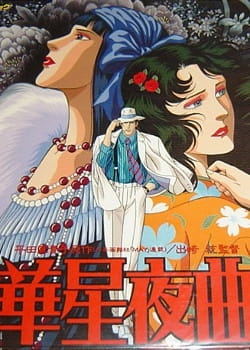
I was in the mood for something overly dramatic, elegant and passionate and Osamu Dezaki never fails to deliver on that, so this entry from my PTW finally got its turn.
This 4 episode OVA seems relatively unknown to the larger public, especially when compared to the rest of Osamu Dezaki's repertoire. In fact, the manga this was adapted from doesn't even have the mangaka listed on MAL, which is kind of sad, but also MAL seems to generally be lacking these days. I just hate the modern anilist ui so much I don't want to use it, despite the database being better lmao. Anyway, you could also call this OVA one of the first anime aimed strictly at adult women due to its themes, nudity and character age. Josei manga definitely has existed since the 60's, but as far as I've noticed, no strictly adult stories have been adapted up until this point.
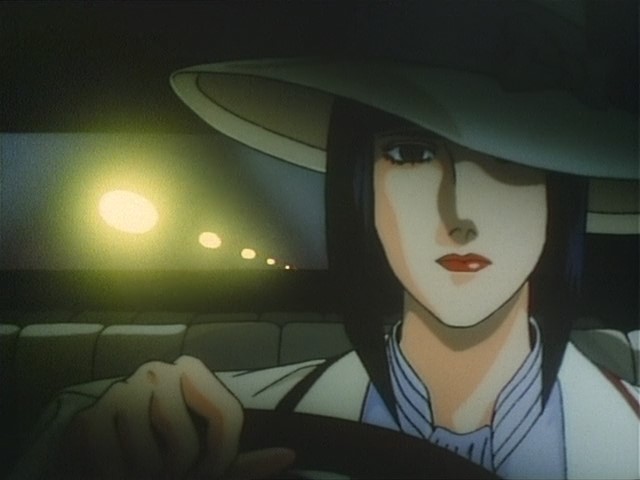
The story has two main characters, young women who just turned 20. Akiko, who is a rich heiress set to marry a bank mogul's son, and Sara, her maid and close friend. Both of them are drenched in ignorance of how the real world works, but due to her upper class lifestyle Akiko is definitely the one who's lacking more life experience. Despite her wealth, Akiko's views on class and gender roles fall in the line of thinking of "Atarashii Josei", a movement that sprung up in Taisho era Japan. I first remember reading about this in Ametora: How Japan Saved American Style, but here's another interesting article on the matter.
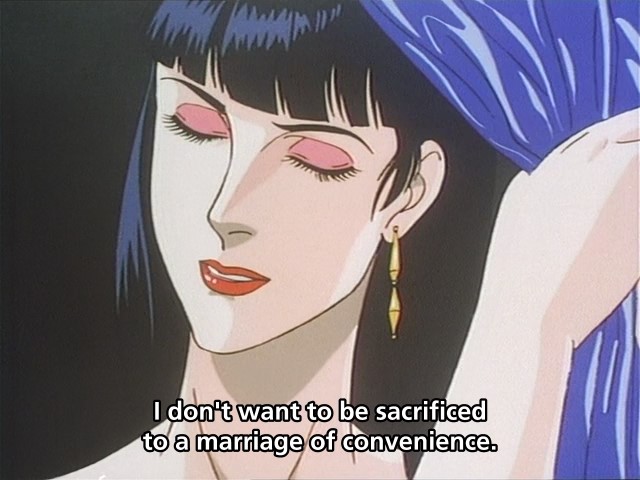
It's a shame that other manga/anime from this era rarely, or rather never, mention this movement in any way. General youth movements all over the world in the 20's are pretty interesting to learn about... I feel like it took an insane amount of boldness to go in a different direction back then. Anyway, like any respectable new woman, Akiko believed in free love and free marriage, aka being able to marry out of love and not be forced into an arranged marriage, as was expected from an upper class lady. Sara on the other hand, is a little bit more pragmatic and grounded. She envies Akiko for her wealth and status and expresses it freely to her. She longs for financial stability. In her desire for freedom, Akiko concocts a convenient plan for both her and Sara getting what they want (read: what Akiko assumes they want). During her birthday party - Sara will pretend to be Akiko and sleep with her bank mogul fiancé, and Akiko will go on to meet a mysterious Yakuza man she fell in love with. After that a lot of drama ensues, neither plan goes accordingly and the two friends end up parting ways and their fates intertwine with the two men in unexpected ways. To top it all off the end of the third episode comes right out of left field if you're lacking in awareness of important events in Japanese history like I was, and the last episode ends on a wistful note.
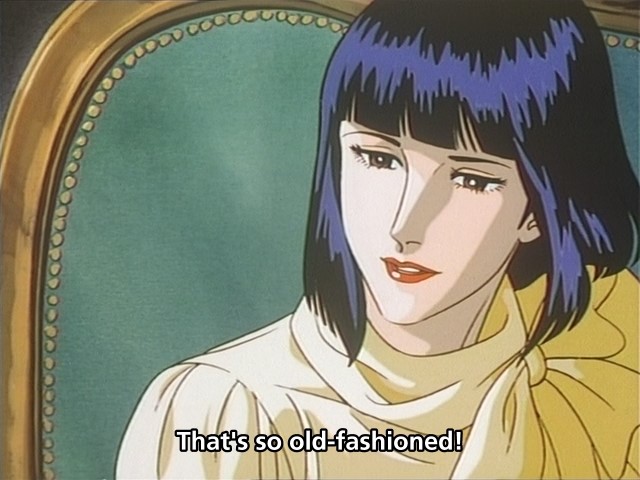
Maybe a lot of ideas expressed here are quite outdated by today's standards, but I really enjoyed this anime anyway. Akiko, despite being ignorant, perhaps spoiled, changing her mind, mulling over things too much, took control of her life and expressed a degree of selfishness that is rarely ever forgiven to a woman. I guess if you put it into Current Day lens, she's still chasing after a man and is potentially ruining her life, and I'm sure something negative could be said about extreme individualism, but I think rebellion against societal expectations takes precedence in this instance. It's important to contextualize properly, which is something I think many people lack nowadays in any type of online discourse (why do I feel the need to mention this? I guess I'm just too bitter recently). For example when you compare her to Taka, the Yakuza she fell in love with, you probably resented him less while watching this anime, even though he too is a very selfish man - but he is allowed to be that way. This type of archetype is commonly treated as an anti-hero, or even as a protagonist, without people hating on their characterization. But to be a selfish woman is often something to be laughed at and to be judged, and I feel like this anime does Akiko justice in that department, as in, we're not viewing her through a negative lens. Maybe my bias is getting in the way though, you be the judge!
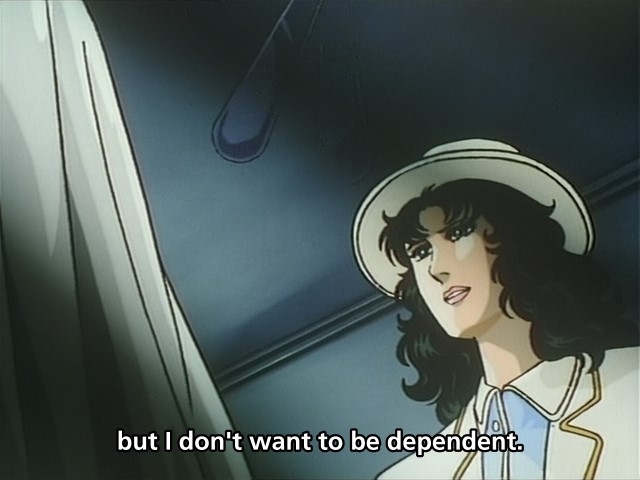
I haven't given Sara a lot of attention in this review, despite her ultimately being the protagonist with more screentime. That's because truth be told, she's a little bit boring. Not in a bad way, but she is a very common type of female protagonist. She's poor but has beauty recognized by everyone, she's a victim of her naiveté, she's devoted to her family... Despite these common qualities she does stand out in certain ways, she isn't reluctant in standing up for herself, and she is also allowed to be selfish and chase her own happiness, but all of that combined does make someone that is a bit too perfect. I do enjoy her general cool-headedness, and despite this work being a total melodrama she doesn't throw any tantrums and isn't portrayed in a "hysterical" fashion that could come across as misogynistic. Still, she didn't captivate me as much. I did however find her ending to be handled really well.
My final thoughts - this was a really good melodrama and I think it's well worth a watch, especially if you like Osamu Dezaki and the work he did with shojo classics like Oniisama-e and Rose of Versailles. Being only 4 episodes long it doesn't overstay its welcome with a massive cast full of intricacies and stories that are hard to follow, neither does it feel too short and unfinished because the plot is contained to a few key characters and they all get their arcs.
